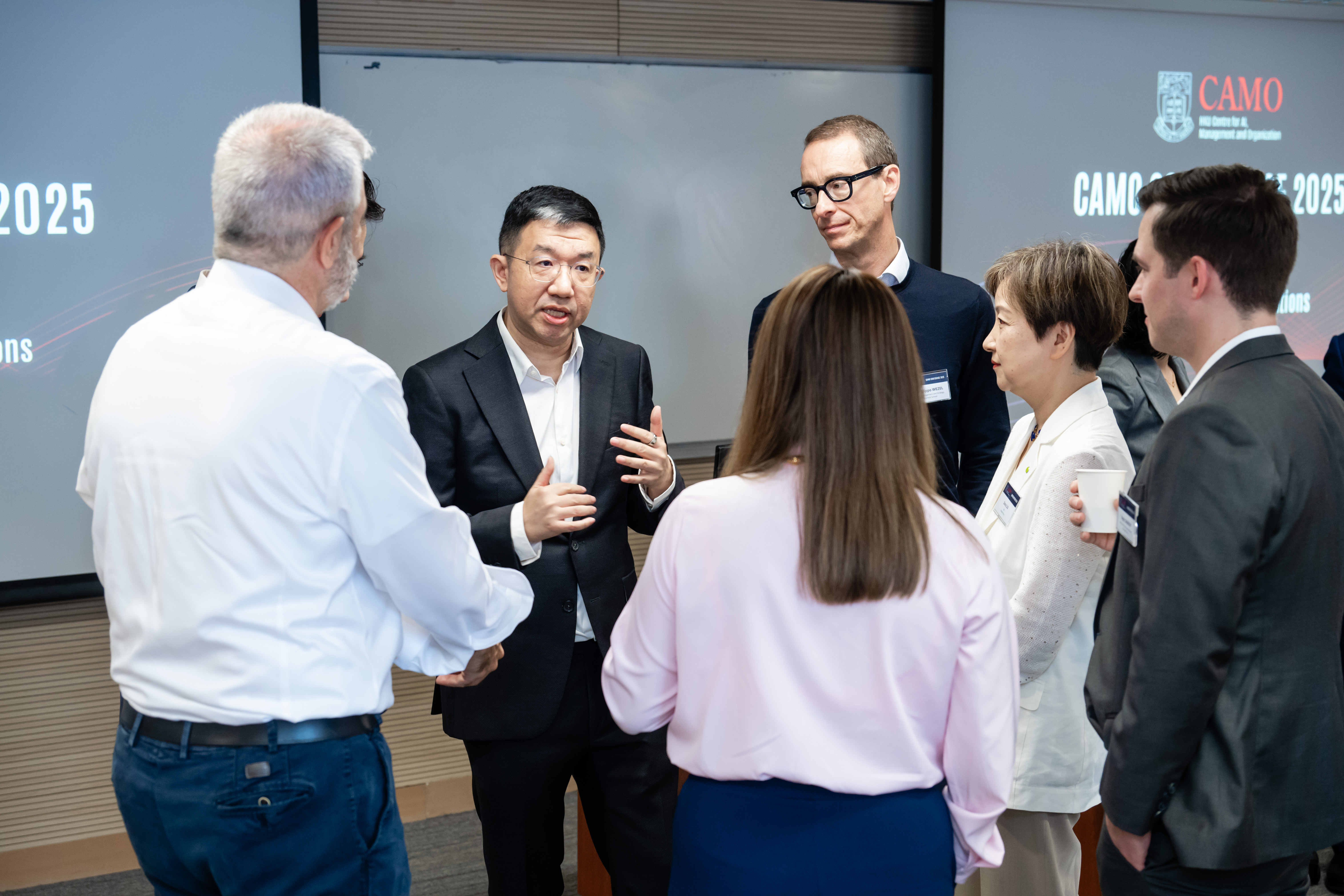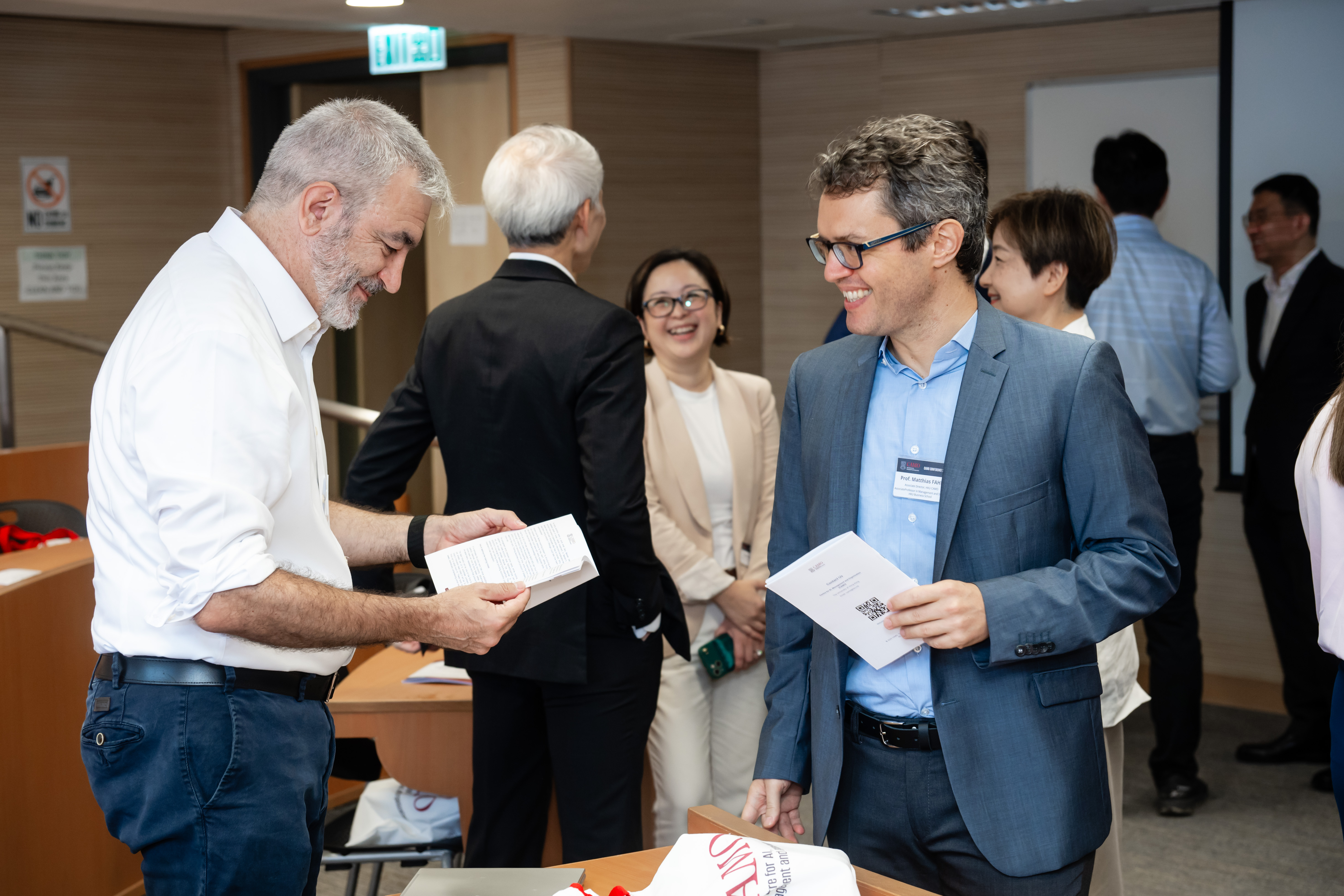The Centre for AI, Management and Organization (CAMO) at the University of Hong Kong hosted its inaugural event, CAMO Conference 2025: The Great Compression – When AI Meets Organizations. The conference brought together leading academics, executives, and practitioners to examine how artificial intelligence is reshaping the workplace, business models, and organizational design.
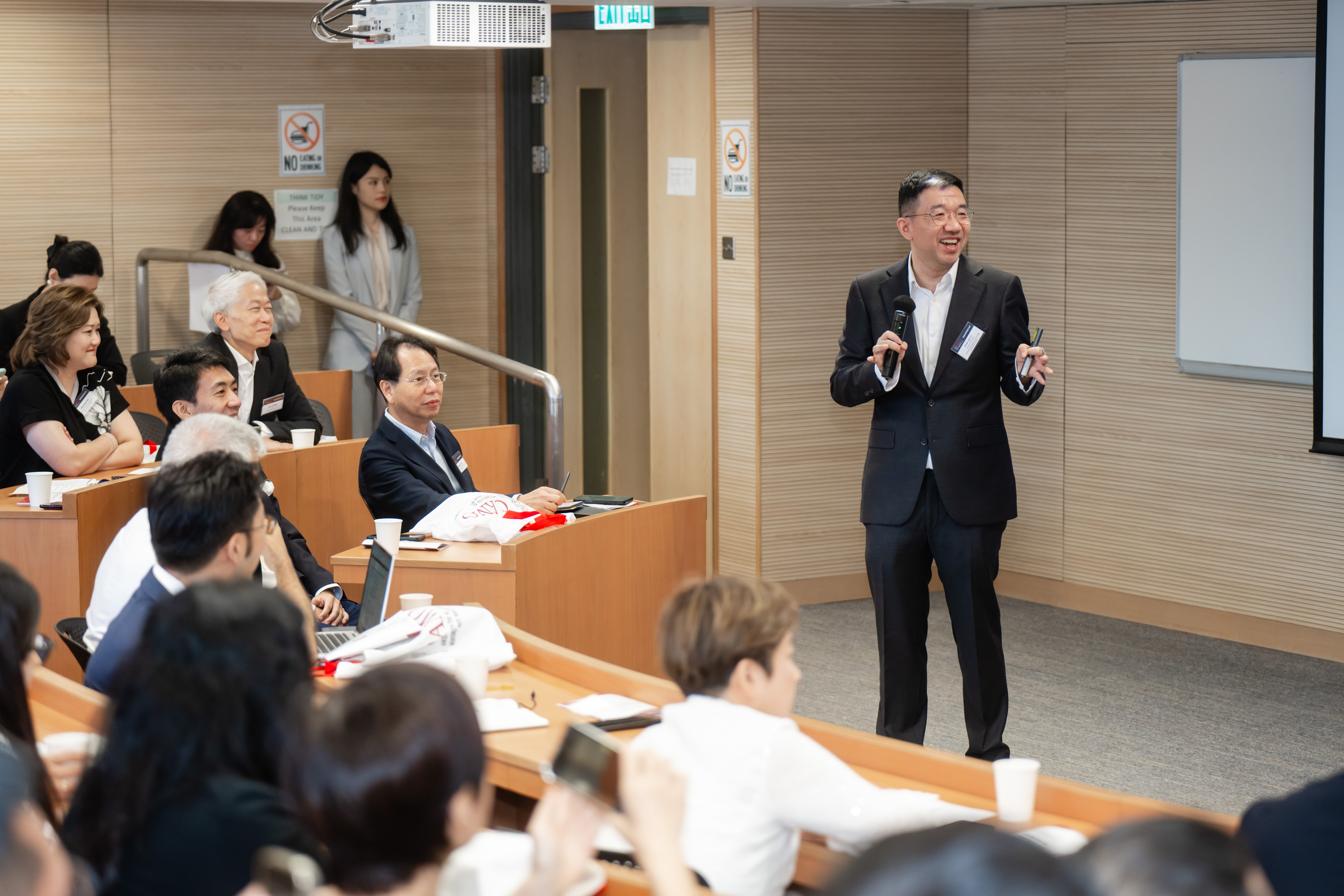
Conference Program
Opening Remarks
- Richard Wong (HKU)
Featured Talks
- AI and the Future of Talent: Four Scenarios – Luis Garicano (LSE) Download Slides
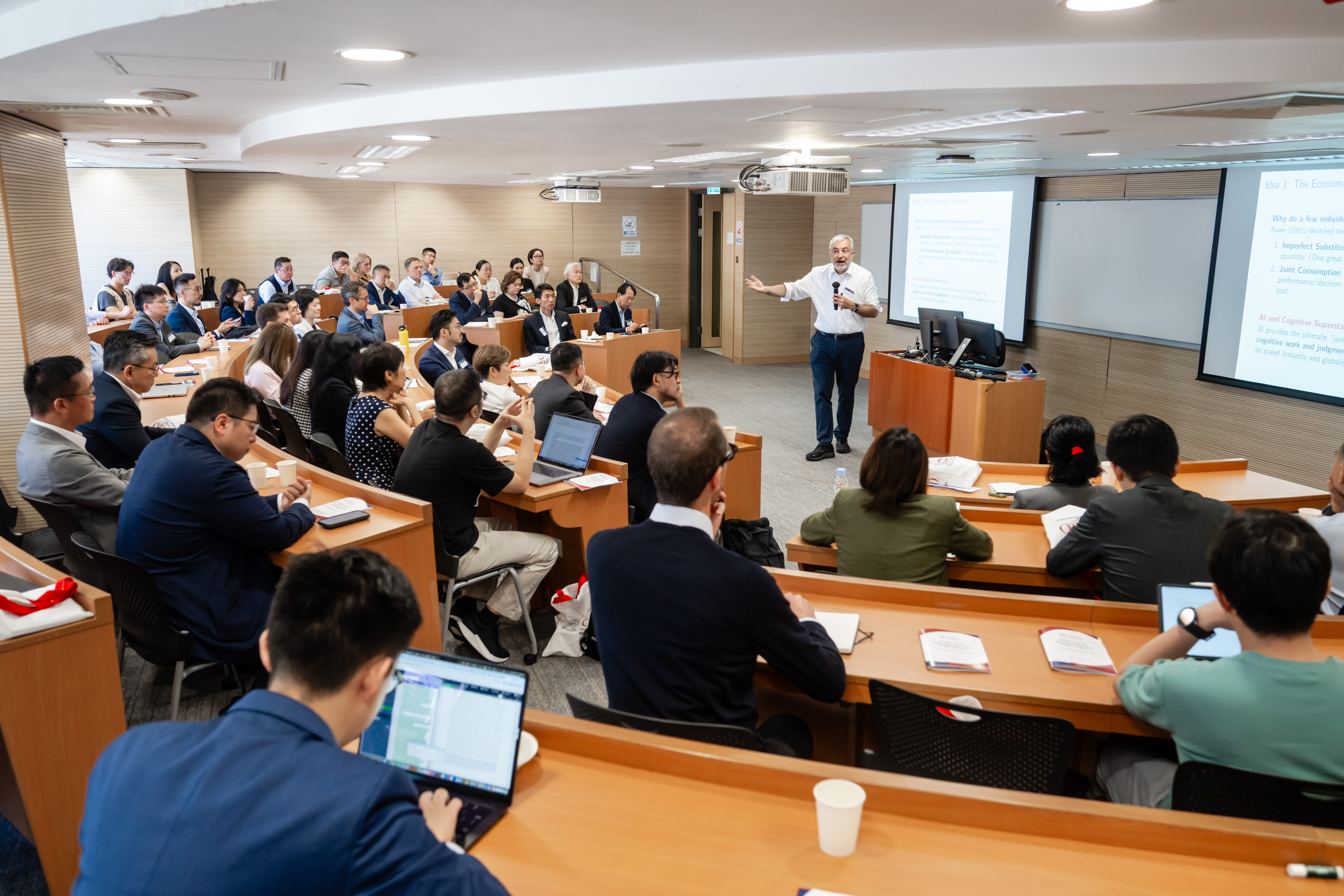
- The Great Compression: When AI Meets Organizations – Jin Li (HKU) Download Slides
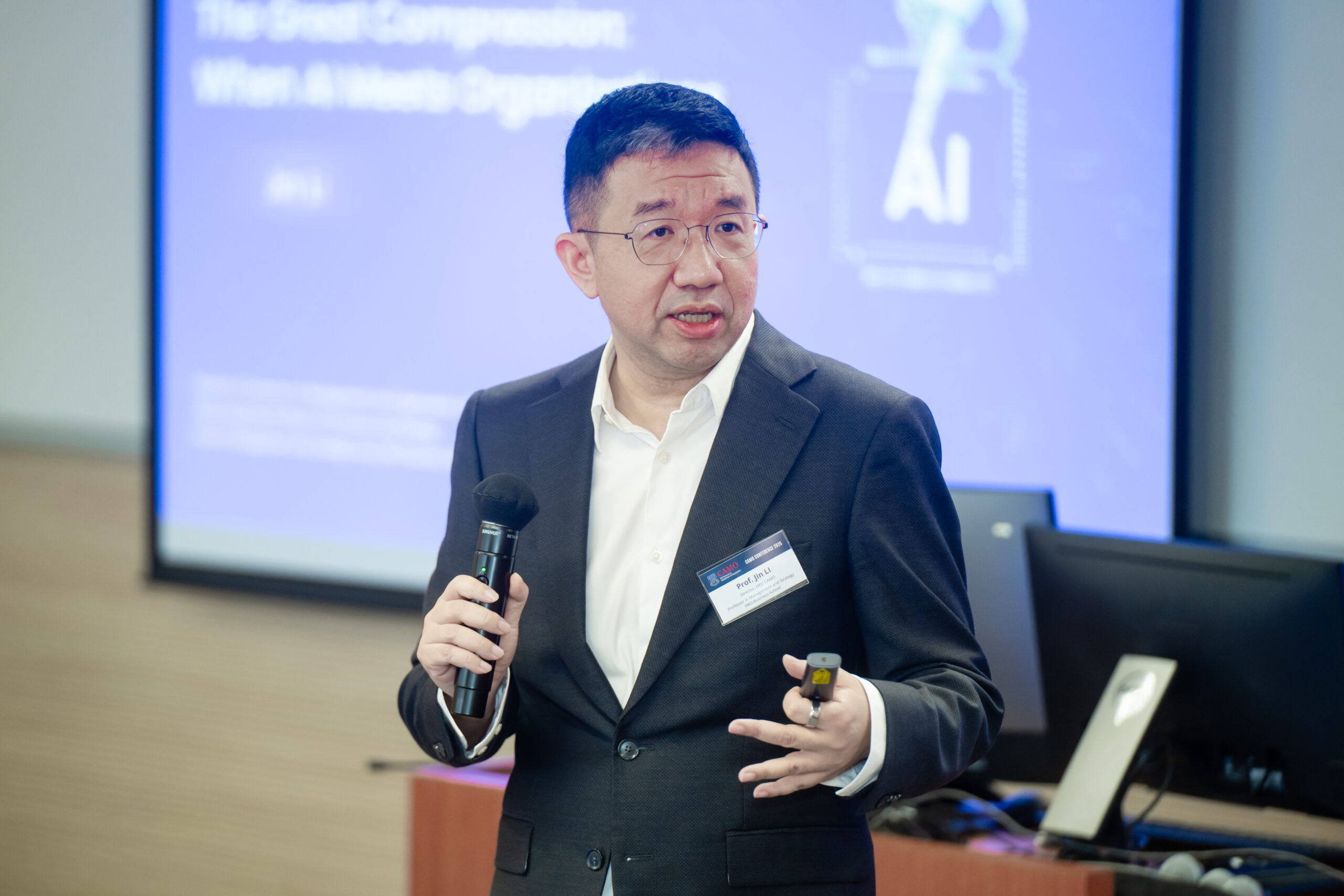
- AI, Skill, and Productivity: Lessons from a Japanese Experiment – Yasutora Watanabe (University of Tokyo) Download Slides
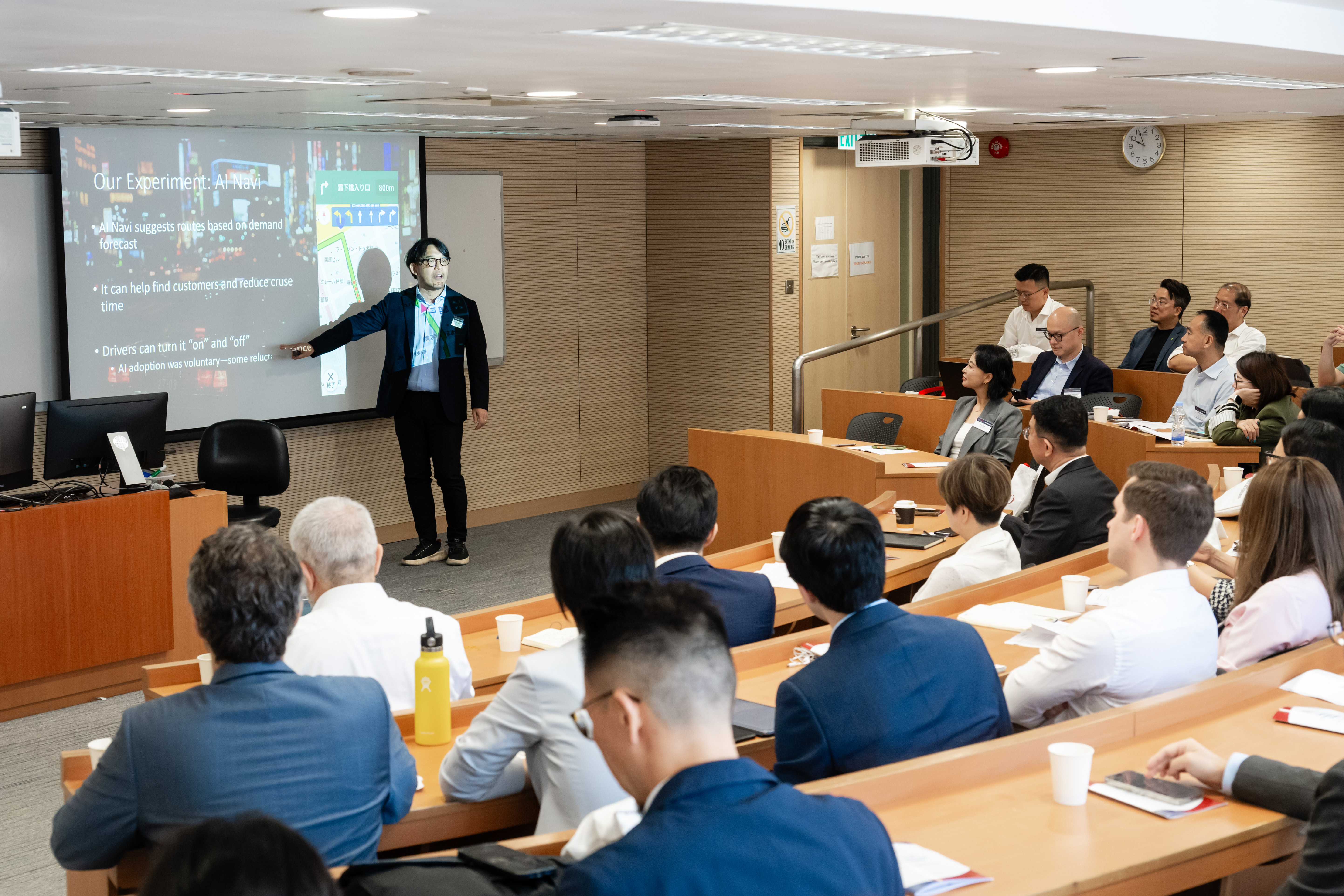
- AI Opportunity Map – Yanhui Wu (HKU) Download Slides
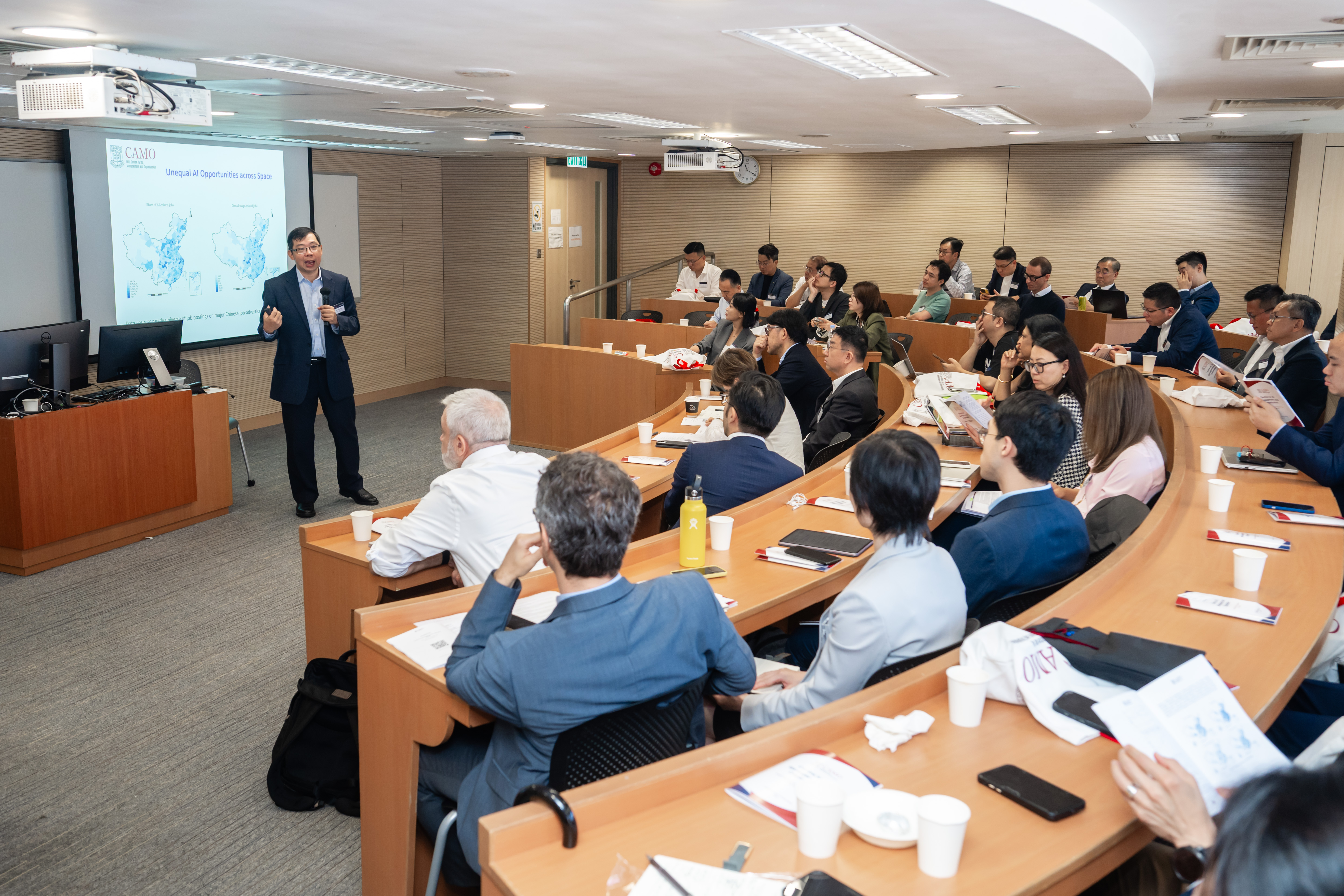
Panel Discussions
- Executive Perspectives: Fireside Chat – Dora Liu (Deloitte China), Moderator: Will Wang (HKU)
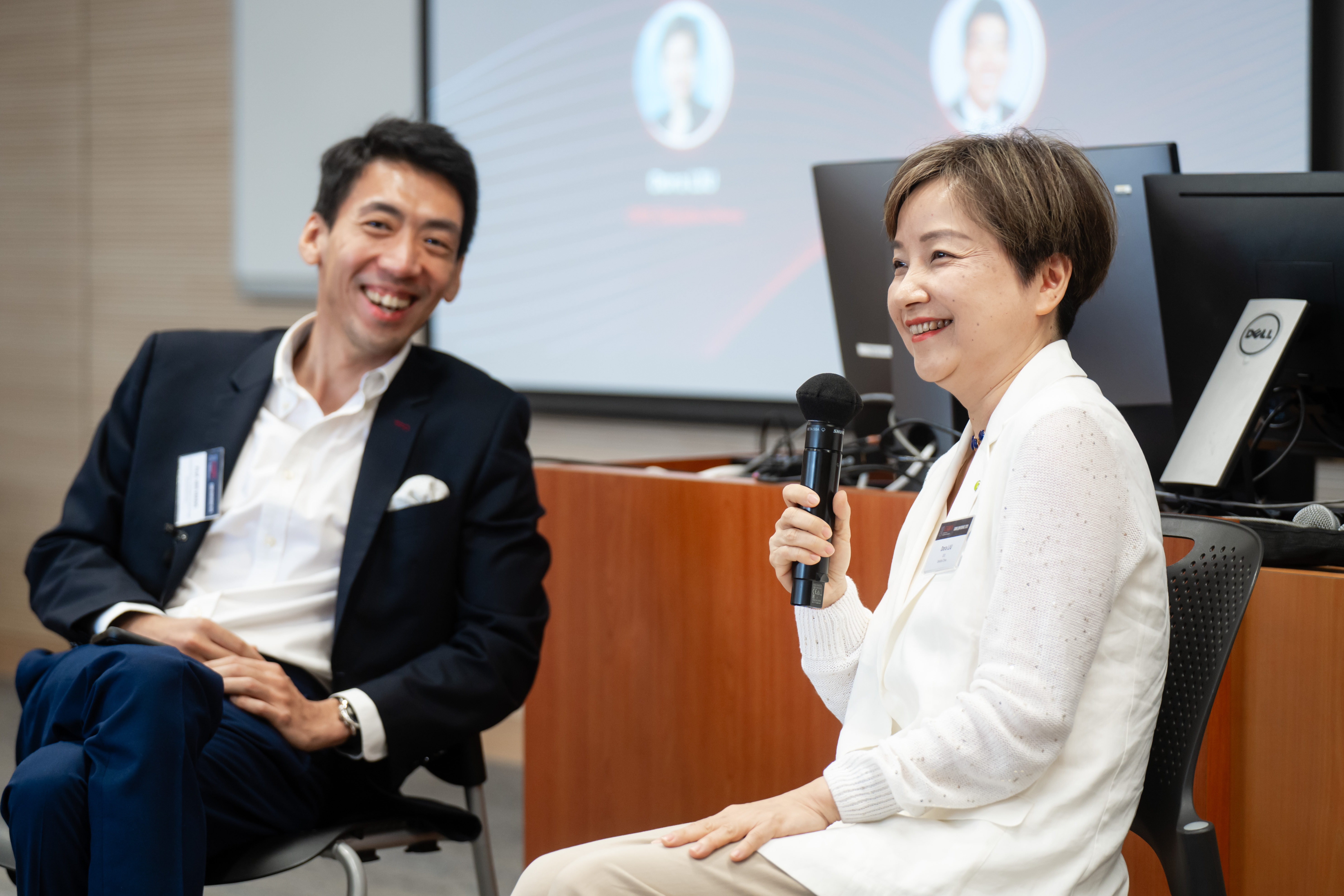
- Inside and Outside the Great Compression – Pascal Hua (Deloitte China), Lingpeng Kong (HKU; ex-DeepMind), Rita Ren (Diageo China), Aiken Yuen (YUM China)— Moderator: Jie Gong (HKU)
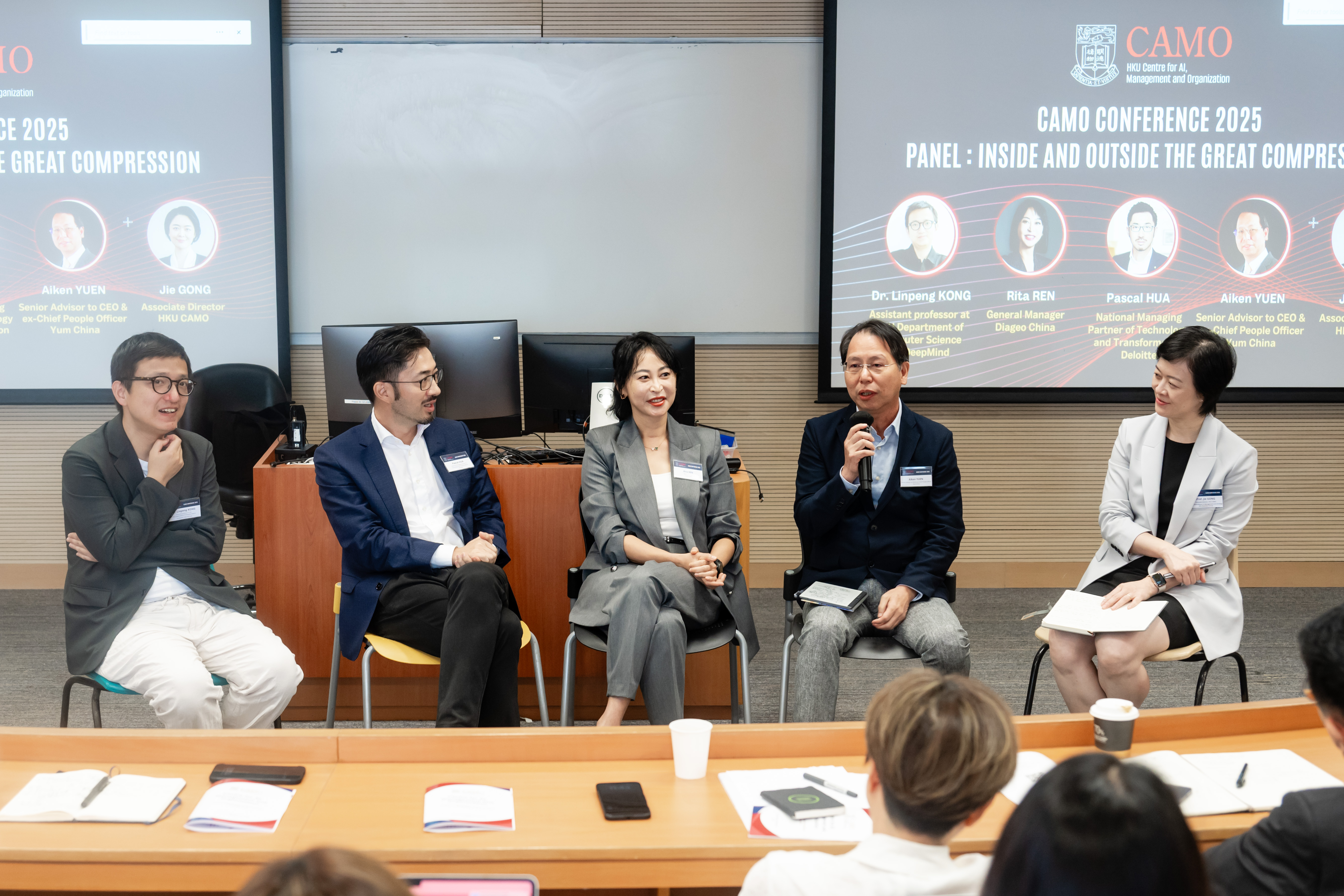
The conference featured contributions from distinguished institutions and enterprises such as the University of Hong Kong, University of Tokyo, the London School of Economics and Political Science, Deloitte, Diageo China, and Yum China, alongside many other participants from academia and industry. This diversity of perspectives created a rich exchange that bridged cutting-edge research with real-world organizational insights.
The gathering succeeded in creating an atmosphere of open dialogue and collegial exchange, with participants offering thoughtful questions, candid perspectives, and shared moments of insight. From pioneering academic research to executive perspectives and practical cases, discussions underscored both the opportunities and challenges of managing through an era of technological transformation.
Across keynote addresses, fireside conversations, and multi-stakeholder panels, the recurring theme was compression: AI’s ability to narrow skill gaps, condense timelines from idea to execution, and redraw the boundaries of organizations themselves. Speakers highlighted not only the productivity gains AI enables but also the profound shifts in incentives, talent management, and business models that follow.
At a time when many organizations are beginning their AI journeys, CAMO Conference 2025 placed a spotlight on how leaders must pair technological adoption with organizational redesign, cultural adaptation, and thoughtful stewardship of human judgment. The dialogue balanced optimism about AI’s transformative potential with realism about the need for strategic choices in incentives, workflows, and policy.
CAMO extends appreciation to all speakers and participants who contributed their knowledge and perspectives, making the event engaging and impactful. The Centre remains committed to advancing the conversation on AI and its organizational implications—whether through collaborative research, executive education, or future convenings.
Stay tuned and follow us on X and LinkedIn for updates.
To connect with the CAMO team directly, please reach out at camo@hku.hk.
